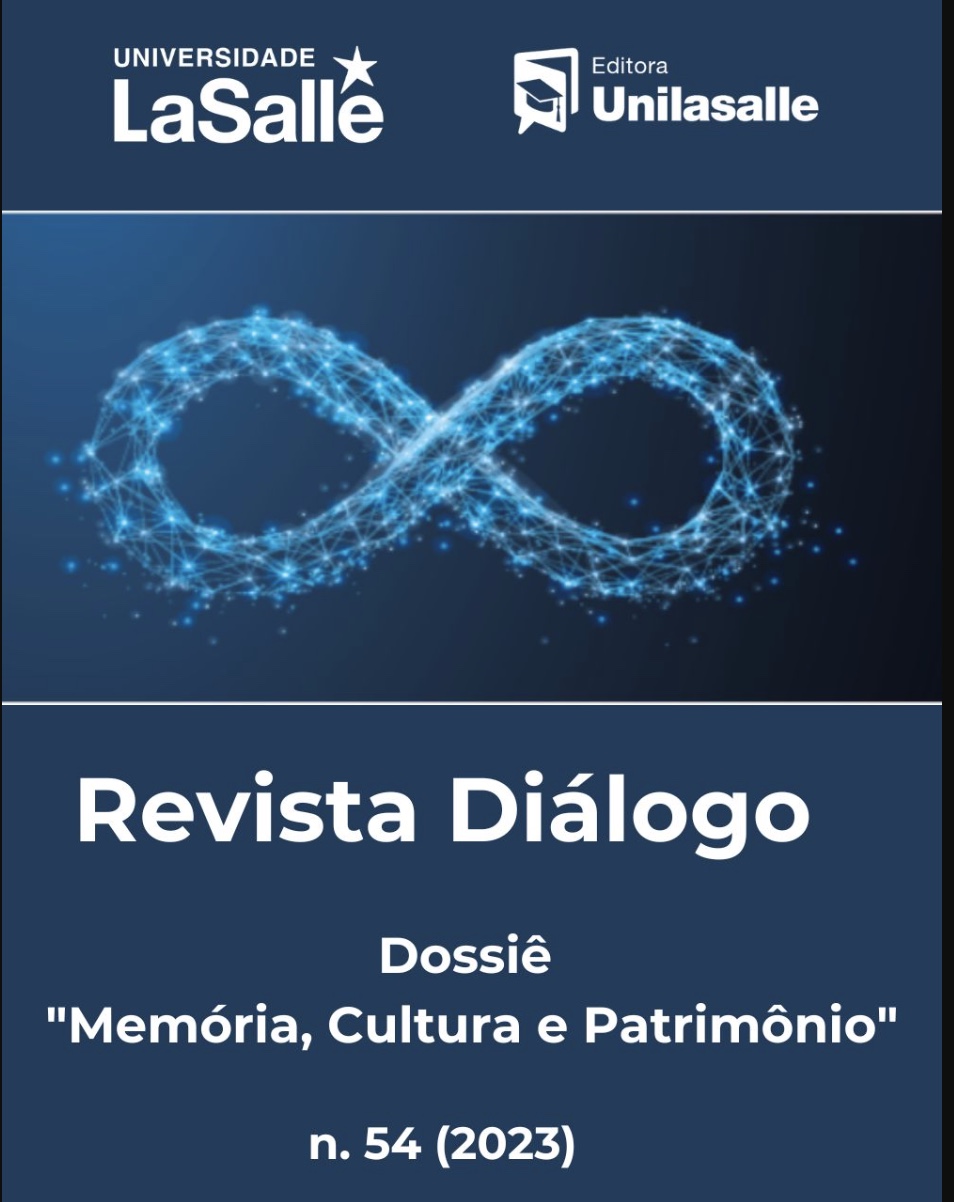Entre as identificações e recusas do patrimônio cultural da cidade
problematizações como possibilidade de abordagem educacional no ensino médio
DOI:
https://doi.org/10.18316/dilogo.vi54.11424Keywords:
Patrimônio Cultural, Identidade, Educação, CurrículoAbstract
The writing aims to problematize the concept of Cultural Heritage through reflections on the refusals and links of belonging of high school students with the temporality of the city's cultural heritage. Based on the analysis of the Base Curriculum of the Santa Catarina Territory for Secondary Education regarding temporality, memory and identity in which it is in line with the teaching of cultural heritage. Using teaching-learning strategies related to the curricular area of human sciences and its technologies, with experiences promoted with the city's cultural heritage to emerge oral narratives from basic education students regarding cultural heritage. About the identifications and refusals that students and people who are part of their sociability networks establish with the urban past, in the meanings attributed to the city's cultural heritage (recognized or not by the public authorities) and the curricular paths within the scope of secondary education as part of significant or not in the formation of students' identity and memory.
References
ANDERSON, Benedict. Comunidades imaginadas: Reflexões sobre a origem e a difusão do nacionalismo. São Paulo: Companhia das Letras, 2008.
BENJAMIN, Walter. Obras Escolhidas: Volume II. 6 ed. Tradução: Rubens Torres Filho e José Carlos Martins Barbosa. São Paulo: Brasiliense, 2012.
BOSI, Ecléa. O tempo vivo da memória. 4 ed. Cotia, SP: Ateliê Editorial, 2022.
BRASIL. Ministério da Educação. Base Nacional Comum Curricular. Brasília, 2017.
BRASIL. Conselho Estadual de Educação de Santa Catarina. Currículo Base do Território Catarinense. Santa Catarina, 2021.
CERTEAU, Michel de. A invenção do cotidiano: 1. Artes de fazer. 22 ed. 6 reimp. Petrópolis, RJ: Vozes, 2020.
FREIRE, Paulo. Pedagogia da autonomia: saberes necessários à pratica educativa. 72ª ed. Rio de Janeiro: Paz e Terra, 2022.
FREIRE, Paulo. Pedagogia da libertação. 2ª ed. rev. Rio de Janeiro: Paz e Terra, 2017.
FREIRE, Paulo. Pedagogia do oprimido. 83ªed. Rio de Janeiro: Paz e Terra, 2022.
JEUDY, Henry P. Espelho das cidades. Rio de Janeiro: Casa da Palavra, 2005.
POLLAK, Michel. Memória, esquecimento, silêncio. vol. 2, n.3. Rio de janeiro: Revista Estudos Históricos, 1989.
RICŒUR, Paul. A memória, a história, e o esquecimento. Campinas, SP: Editora da UNICAMP, 2007.
ROUSSO, Henry. A última catástrofe: a história, o presente e o contemporâneo. Tradução de Fernando Coelho, Fabrício Coelho. Rio de Janeiro: FGV Editora, 2016.
SANTA CATARINA. Secretaria do Estado da Educação. Currículo base do ensino médio do território catarinense: caderno 2 – formação geral básica. Florianópolis: Gráfica Coan, 2021
SILVA, Tomaz T. da. Identidade e Diferença: a perspectiva dos Estudos Culturais. 15 ed. 10 reimp. Petrópolis, RJ: Editora Vozes, 2022
SMITH, Laurajane. Emotional heritage: visitor engagement at museums and heritage. Abingdon, Oxon ; New York, NY: Routledge, 2020.
KOSELLECK, Reinhert. Uma latente filosofia do tempo. São Paulo: Editora Unesp, 2021.
HALBWACHS, Maurice. A memória coletiva. São Paulo: Editora Revista dos tribunais LTDA, 1990.
HARTOG, François. Regimes de Historicidade: Presentismo e experiências do tempo. Belo Horizonte: Autêntica, 2013.
Downloads
Published
Issue
Section
License
Authors who submit their manuscripts to be published in this journal agree to the following terms:- Authors retain copyright and grant the journal right of first publication with the work simultaneously licensed under the Creative Commons Attribution License that allows the sharing of work and recognition of its initial publication in this journal.
- By virtue of the articles appearing in this open access journal, articles are free to use, with proper attribution, in educational and non-commercial.


